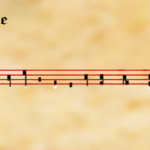Today brings us the feasts of three great saints, a bishop, Paulinus of Nola, and two martyrs, St. John Fisher, and St. Thomas More.
Therefore, the day gives us a wealth of choices in the Office of Readings. After the scriptural reading from the first book of Samuel, we can peruse an edifying letter by Paulinus, (“only recently have I begun to breathe in the air of life; only recently have I put my hand to the plough and taken up the cross of Christ. I need to be helped by your prayers to persevere to the end.”) or a treatise on Christian Perfection by St. Gregory of Nyssa, who is always a favorite, or we can read the a moving and inspirational excerpt from a prison letter written by St. Thomas More, to his daughter, Meg.
The More letter was new to me; I have been a lackluster Christian and it has taken every day of my nearly 52 years to come to understand and accept the challenge to trust in the Lord with one’s whole heart, and testify to the great truth: that all things happen for the best.
This is a lesson I have lately been discussing with one of my sons, and perhaps that is why the letter touched me so personally.
I particularly liked More’s line to Meg: “If he permits me to perish for my faults, then I shall serve as praise for his justice.” This echos Paul in his letter to the Ephesians, “In love he destined us for adoption to himself through Jesus Christ. In accord with the favor of his will, for the praise of the glory of his grace that he granted us in his beloved,” and it presages the Carmelite mystic, Bl. Elizabeth of the Trinity, whose whole vocation found meaning in her perceived and promised role as laudem gloriae “the praise of glory.”
Although my reading is nothing special, I really wanted to share the letter with you, so I have recorded a podcast of it. The last paragraph is worth committing to memory, and even for use as prayer:
And, therefore, my own good daughter, do not let your mind be troubled over anything that shall happen to me in this world. Nothing can come but what God wills. And I am very sure that whatever that be, however bad it may seem, it shall indeed be the best.”
I know some of my Lutheran friends are not fans of St. Thomas More. But I think they can agree that if he did nothing but instill that profound and true reality into the heads of his children, he did a very good and worthy thing.
Slightly Off Topic: More’s allusions to Peter brought to mind something I had written just about a year ago, concerning Matthew 14:25-31, and its Icon:

As long as he kept his eyes on Jesus, Peter had been able to do the impossible, the unimaginable. It was when he looked away, focused instead on the tumult surrounding him, that he doubted. And as soon as he doubted, he began to sink. As soon as he thought of himself, focused on his perceived reality, Peter was pulled under.
This is a particularly restful Icon. The colors are lush, the waves in foreground and background are wonderfully hypnotic, and the shore invites a trek into the wilderness. But it is the beautifully-rendered, compassionate and loving face of Christ that holds and keeps your focus. He reaches out to Peter, whose own face is open with a dawn of understanding, and Christ, meeting his eyes, uplifts him.
To trust is the most difficult thing. But I am learning, with every new day, that it is the only way; trust teaches obedience, which is the narrow and royal highway by which we speed God’s glory along, and become its praise.
UPDATE: Also read this timely piece on Bonhoeffer, by Cal Thomas, which relates to the More excerpt in theme (and will make my Lutheran friends happy!)
Speaking of Bonhoeffer, it was just about a year ago I was tussling with another blogger over George Tiller, William Long and Dietrich Bonhoeffer, here at First Things.
Related:
DaTechGuy discovers that every Good Friday has its Easter











